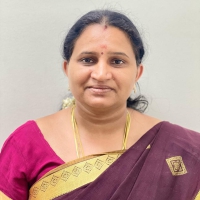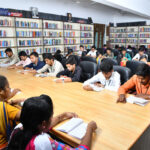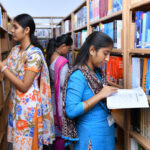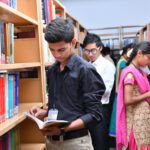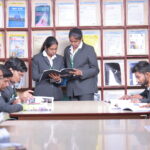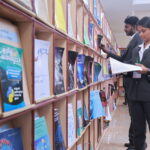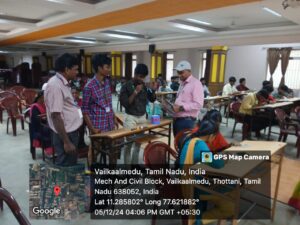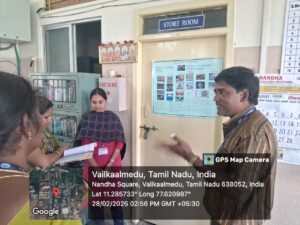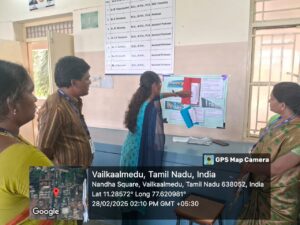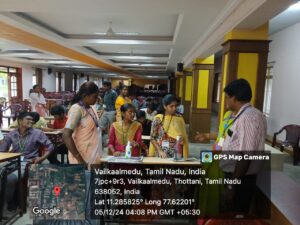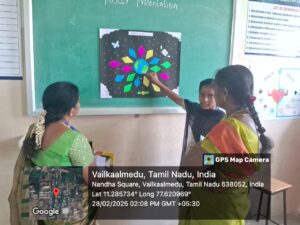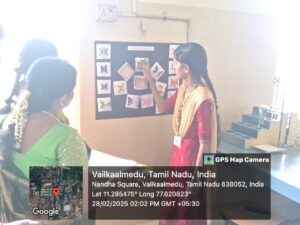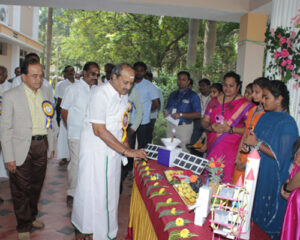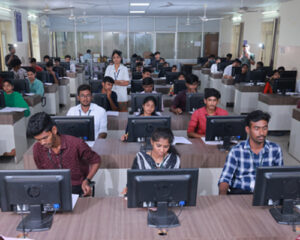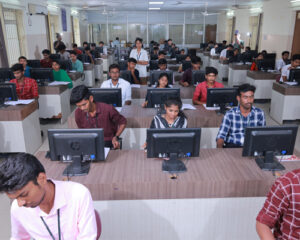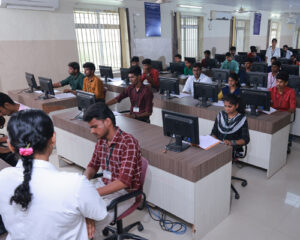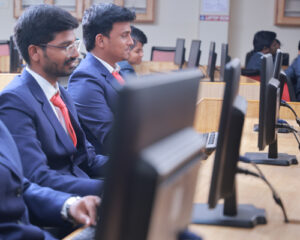
Head of the Department
Science and Humanities
Intake 1020
About the Department
Life after school for any candidate who has completed Plus-Two will be envisioned inside the portals of College. Nandha promises a mind blowing experience for the fresh minds in Science and Humanities Department which no other Educational Institution can offer.
Department of Science and Humanities has devoted staff members with high academic excellence and experience .The department holds the responsibility of imparting up-to-date knowledge, improving their skills and developing a positive attitude in students.
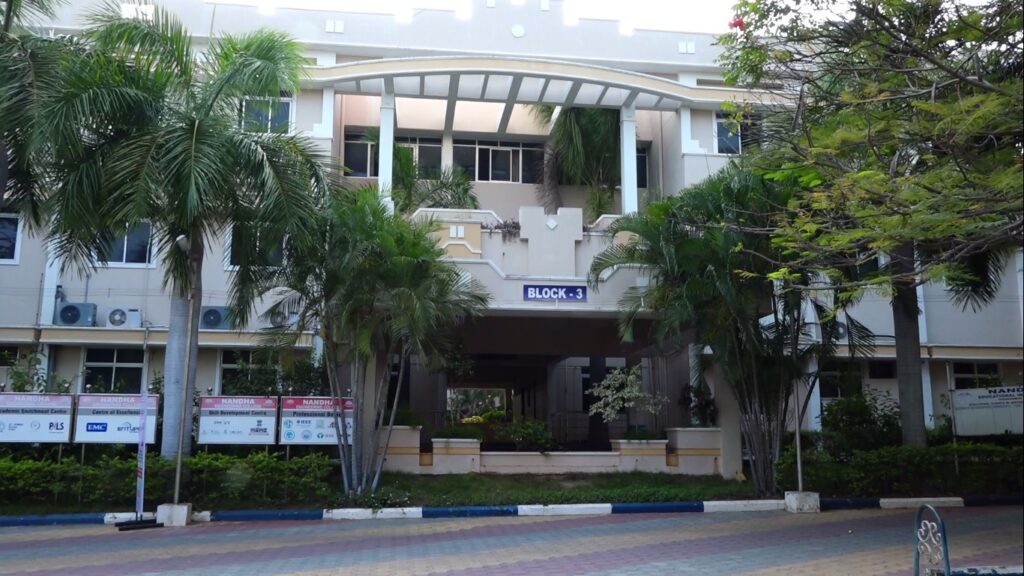
VISION
The department is dedicated to fostering a passion for chemistry, advancing excellence in education and research, and promoting lifelong learning, all while working towards innovative solutions to global challenges.
MISSION
- To create a sustainable and harmonious future by harnessing the potential of chemistry, driving innovative solutions that promote environmental health, social well-being, and economic growth.
- To equip students with the skills to excel in teaching and research, while empowering them to share their chemistry expertise with the broader community
- To foster dynamic interactions between students, alumni, and industry professionals, inspiring and educating diverse audiences on the transformative power of chemistry and its critical impact on solving global challenges.
PROGRAM EDUCATIONAL OBJECTIVES (PEOs)
- PEO1: Core Competency: Apply the knowledge of mathematics, science and engineering fundamentals to identify and solve technological problems by deploying various software tools for societal development.
- PEO2: Research, Innovation and Entrepreneurship: Implement recent tools, technologies and innovative ideas for leading successful careers in research / entrepreneurship and to excel in solving real world problems.
- PEO3: Ethics, Human Valued and Life-Long Learning: Exhibit professional ethics in the industry and possess the necessary skills for working in multi-disciplinary areas with focus on life-long learning.
- PO1: Engineering Knowledge: Apply knowledge of mathematics, natural science, computing, engineering fundamentals and an engineering specialization to develop the solution of complex engineering problems.
- PO2: Problem Analysis: Identify, formulate, review research literature and analyze complex engineering problems reaching substantiated conclusions with consideration for sustainable development.
- PO3: Design/Development of Solutions: Design creative solutions for complex engineering problems and design/develop systems/components/processes to meet identified needs with consideration for public health and safety, whole-life cost, net zero carbon, culture, society, and environment as required.
- PO4: Conduct Investigations of Complex Problems: Conduct investigations of complex engineering problems using research-based knowledge including design of experiments, modelling, analysis & interpretation of data to provide valid conclusions.
- PO5: Engineering Tool Usage: Create, select and apply appropriate techniques, resources and modern engineering & IT tools, including prediction and modelling recognizing their limitations to solve complex engineering problems.
- PO6: The Engineer and The World: Analyze and evaluate societal and environmental aspects while solving complex engineering problems for its impact on sustainability with reference to economy, health, safety, legal framework, culture, and environment.
- PO7: Ethics: Apply ethical principles and commit to professional ethics, human values, diversity and inclusion; adhere to national & international laws.
- PO8: Individual and Collaborative Teamwork: Function effectively as an individual, and as a member or leader in diverse/multi-disciplinary teams.
- PO9: Communication: Communicate effectively and inclusively within the engineering community and society at large, such as being able to comprehend and write effective reports and design documentation, make effective presentations considering cultural, language, and learning differences.
- PO10: Project Management and Finance: Apply knowledge and understanding of engineering management principles and economic decision-making and apply these to one’s own work, as a member and leader in a team, and to manage projects and in multidisciplinary environments.
- PO11: Life-Long Learning: Recognize the need for, and have the preparation and ability for i) independent and life-long learning ii) adaptability to new and emerging technologies and iii) critical thinking in the broadest context of technological change.
- PSO1: Analyze, design and apply mathematical foundations, principles of computing, Algorithms, modeling and design of Information Technology based systems.
- PSO2: Develop problem-solving skills in the broad area of programming concepts and to manage interdisciplinary projects.
Supporting Staff Members
Department Laboratory
t
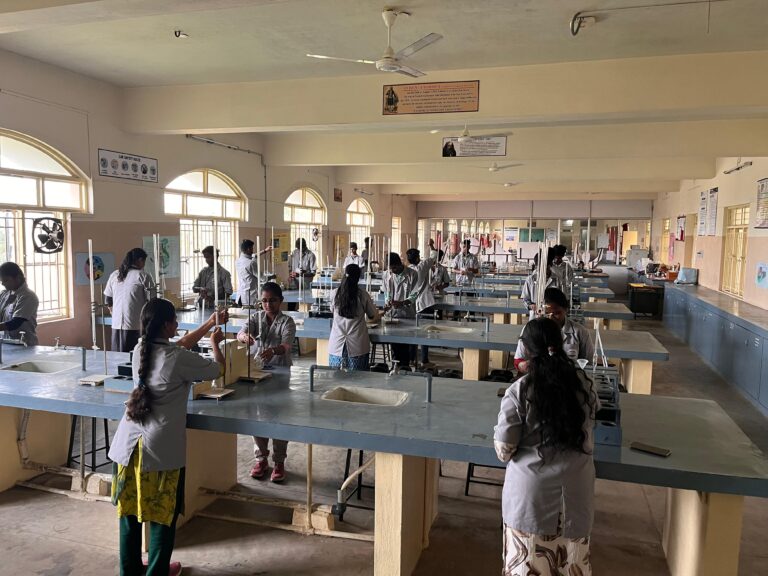
Chemistry lab
The Chemistry Laboratory is a well-equipped facility designed to support both instructional and research activities in the field of chemistry. It provides a safe and controlled environment for conducting experiments in general, organic, inorganic, analytical, and physical chemistry. The lab is furnished with standard laboratory benches, fume hoods, safety showers, eye wash stations, and chemical storage units Each laboratory operates on a specific schedule which is stated by the corresponding Time Table of the specific semester / branch.






